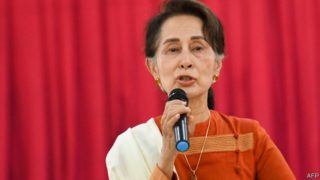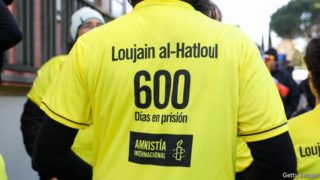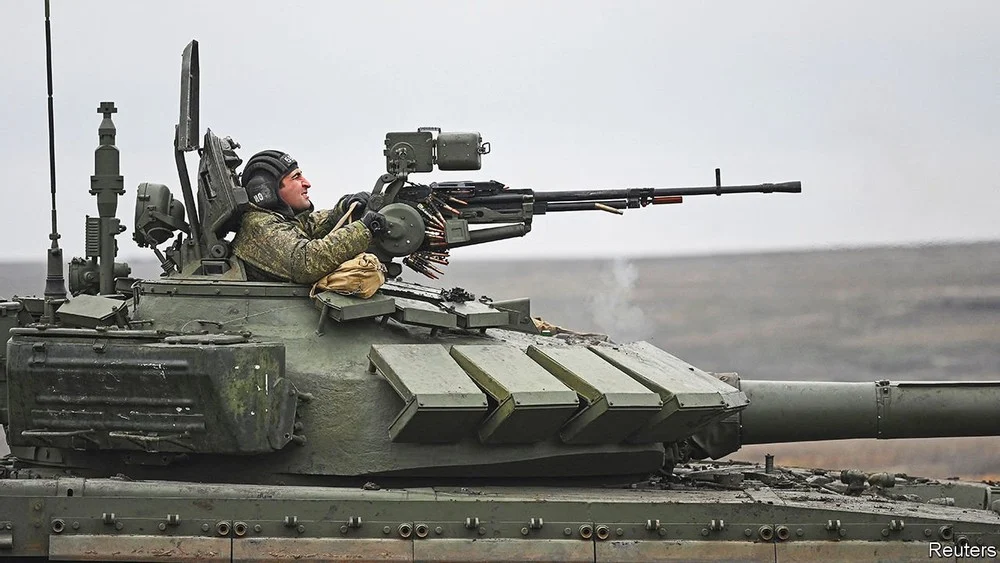The army’s motives are unclear
SINGAPORE
WHEN MYANMAR’S army ended nearly 50 years of military rule in 2011, making way for a civilian government, many were suspicious about its willingness to relinquish power. It initially tried to exclude the country’s most prominent democracy activist, Aung San Suu Kyi, from government; it handed authority instead to a party of military stooges. When it did at last allow Ms Suu Kyi’s National League for Democracy to take power, in 2016, it still retained great authority—but not, apparently, as much as it would have liked.
Early on the morning of February 1st the army toppled the elected government, arresting Ms Suu Kyi. The army declared a year-long state of emergency and handed power to the commander-in-chief, Min Aung Hlaing. Soldiers have been deployed to the streets of the capital, Naypyidaw, and the largest city, Yangon, where they have erected blockades on major roads. A decade after the generals voluntarily relinquished control of the country, they have clawed it back.
Not for the first time. The army, or Tatmadaw as it is known, twice seized power from democratically elected governments in the 20th century and ruthlessly quashed pro-democracy movements. It is used to being in charge. When it gave up power in 2011, the army had envisioned a peculiar, hybrid “discipline-flourishing democracy”; the constitution that it drew up protected many of its powers. The Tatmadaw remained a law unto itself, and its relationship with Ms Suu Kyi’s administration has been fraught—no matter that she rushed to the generals’ defence at the International Court of Justice in The Hague in 2019, where the army stood accused of committing genocide against the Rohingya, a persecuted Muslim minority.
The catalyst for the coup was an election held in November. The vote was widely seen as a referendum on Ms Suu Kyi’s government, which had been in power since 2016. Ms Suu Kyi’s National League for Democracy (NLD) won a staggering 83% of the seats, trouncing the main army-backed opposition party. The generals alleged that it was conducted unfairly. Though independent election observers said that voters were “able to freely express their will at the polls and choose their elected representatives,” the army claimed that there had been widespread fraud. On January 26th a military spokesman refused to rule out the possibility of a coup. The following day General Min Aung Hlaing told senior military personnel that if the constitution is not adhered to, it must be revoked.
Talks between the government and army on January 28th failed to defuse tensions. The Tatmadaw is reported to have requested a recount of the vote and a postponement to the new session of parliament, which was scheduled to start on February 1st. The government declined. The following day tanks and armoured vehicles appeared on the streets of major cities.
In addition to Ms Suu Kyi, the army has detained senior figures in the NLD, the chief ministers of several regions and activists who rose to prominence during the protests of 1988, when Ms Suu Kyi first emerged as a leader of the democracy movement. Reports suggested that mobile internet connections and phone services had been disrupted in major cities. The state broadcaster, MRTV, citing technical problems, went off air. The main international airport, in Yangon, is closed. The city’s residents formed long queues at ATMs, but many of them were not working.
The army’s motivations are murky. Many analysts had believed a coup was unlikely because the constitution protects the Tatmadaw’s interests so well. The commander appoints the man who is notionally his boss, the minister of defence, as well as the ministers of the interior and border control. That gives him control over the police, intelligence services and border guards, as well as the armed forces. A quarter of the seats in parliament are reserved for serving military officers. Because amendments to the constitution require the support of three-quarters of MPs, the army can veto any changes it does not like.
But General Min Aung Hlaing may be concerned about his own future in a country where the army is reviled and the civilian government has been trying (fruitlessly) to bring it under civilian control. He was due to retire from the forces this year, and may have harboured political ambitions of his own, hopes that were snuffed out in the November election. “He didn’t have a plan B,” says a Western diplomat based in Yangon, yet “he needed something to guarantee his legacy, his liberty and his family wealth.” David Mathieson, an analyst, suspects that the commander “didn’t like the fact that [the army’s] standing has been diminished” and wants to restore the army’s authority.
It remains to be seen whether the public will go along with this. Ms Suu Kyi is adored within Myanmar. She is best known for having led the opposition for nearly 15 years from under house arrest, between 1989 and 2010, during which time she was awarded the Nobel peace prize. And unlike the last time the army refused to recognise the result of an election, in 1990, the Burmese have now experienced five years of democracy; they do not want to return to the dark days of the military junta. “The doors just opened to a very different future,” wrote Thant Myint-U, a Burmese historian, on Twitter. “I have a sinking feeling that no one will really be able to control what comes next.”
By The Economist





